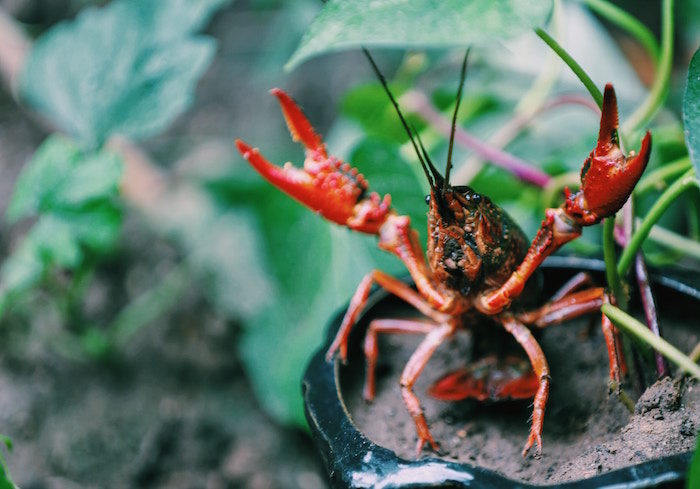Plastic pollution has reached catastrophe levels. Yes, there are people who are making a huge effort to reduce their plastic use by choosing reusable or compostable packaging, but we’ve reached a point where it’s not even possible to recycle most of the plastic that we throw away. Since China has banned the import of plastic waste, many cities and municipalities have stopped collecting plastic recyclables. Finding a solution that works on a global, or even national scale won’t be easy. We’re in desperate need of alternatives, but we also need to change our attitude towards plastic use. We need to understand that throwing something “away” doesn’t mean it’s actually “going away”—it’s just going into a landfill somewhere else.
Some companies are coming up with biodegradable alternatives that could reduce our reliance on plastic waste. This is where the London-based startup Shellworks comes in. This startup is using lobster shells to create a biodegradable alternative to plastic, and at first glance, the idea sounds intriguing.
How does it work? Lobster shells contain a polymer called chitlin, which can be extracted and used to develop a sturdy, biodegradable material. Right now, the company is testing out the process of making biodegradable plastic bags with this chitlin-based material.
Where does Shellworks get all these lobster shells? From restaurants in London that are throwing them away. Again, this sounds like a good idea on the surface: making use of food waste to create a plastic alternative that won’t sit in a landfill forever is definitely a major improvement over normal plastic, right?
And sure, there is something to it—although this product isn’t vegan, putting food waste to good use in some way is certainly better than doing nothing with it, and using a biodegradable material would be better than using plastic and then tossing it away into a landfill. But a product like Shellworks wouldn’t really solve the problem that we’re facing.
The major problem with the Shellworks material? The reason that we have so much seafood waste is because of the destructive fishing industry and widespread issues with overfishing. And here’s the catch—the fishing industry actually creates a massive amount of plastic waste in our oceans. If it relies on an industry that already pollutes our oceans with so much plastic, how much could a product like this really reduce the amount of plastic we waste that we use?
Sure, as long as we have a commercial fishing industry, using the waste for this purpose is better than not using it at all, but if we want to maintain the health of our oceans, combat plastic pollution in the sea, and boost the populations of marine wildlife, we need to move away from commercial fishing. It’s not a sustainable industry, and it harms the wildlife. This product may be interesting, but it is dependent on another exploitative industry that leaves all kinds of plastic waste in our oceans.
We will probably always need disposable plastic materials for some things—for example, certain tools used for medical purposes have to be single use. Some people with disabilities specifically need to use plastic straws to drink because they’re safer and more flexible than other materials. But most of us who rely so heavily on disposable plastic in our daily lives could be doing much more to reduce our use of it—and the companies who sell these products need to invest in developing reusable or biodegradable packaging made out of plant-based materials.
This is where products like Shellworks blur the conversation. We hear of materials like this and wonder if we’ll really need to change our habits after all—if we can simply keep living the same lifestyle, just with “greener” products. But that’s not the answer. We need to reduce our personal consumption. We need to stop thinking about our own convenience first and start thinking about the planet first instead. For example, do we really need biodegradable bags made out of lobster shells when we can simply reuse a canvas bag or a backpack? We already have better answers to problems like this.
The truth is that most of us simply don’t need to use as much plastic as we think we do. Our first step should be reducing our plastic use and pushing our representatives to hold these corporations responsible for creating these products that harm our environment. Startups like Shellworks might serve a temporary purpose for reusing waste from the fishing industry, but truthfully, products like this aren’t going to solve our plastic problem. We need to rethink our lifestyles from top to bottom and start creating a world where living without plastic is just as easy and convenient.
Also by Jane: Ditching All Skincare Products Cleared My Acne. Why A Minimalist Routine Might Work For You
Can’t Go Zero Waste? How To Master Low-Waste Living And Feel So Much Better
Get more like this—Subscribe to our daily inspirational newsletter for exclusive content!
__
Photo: Stone Wang on Unsplash





